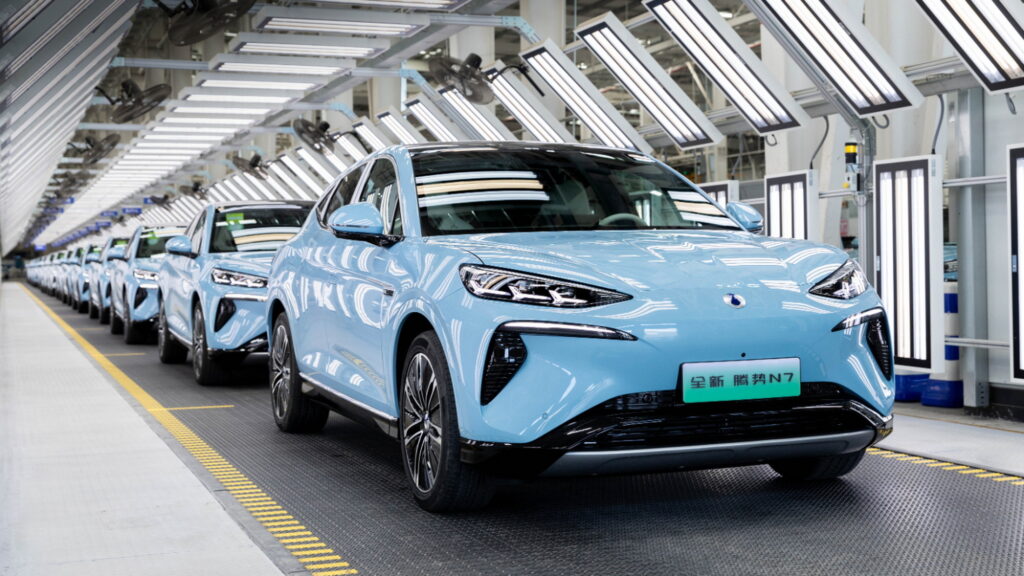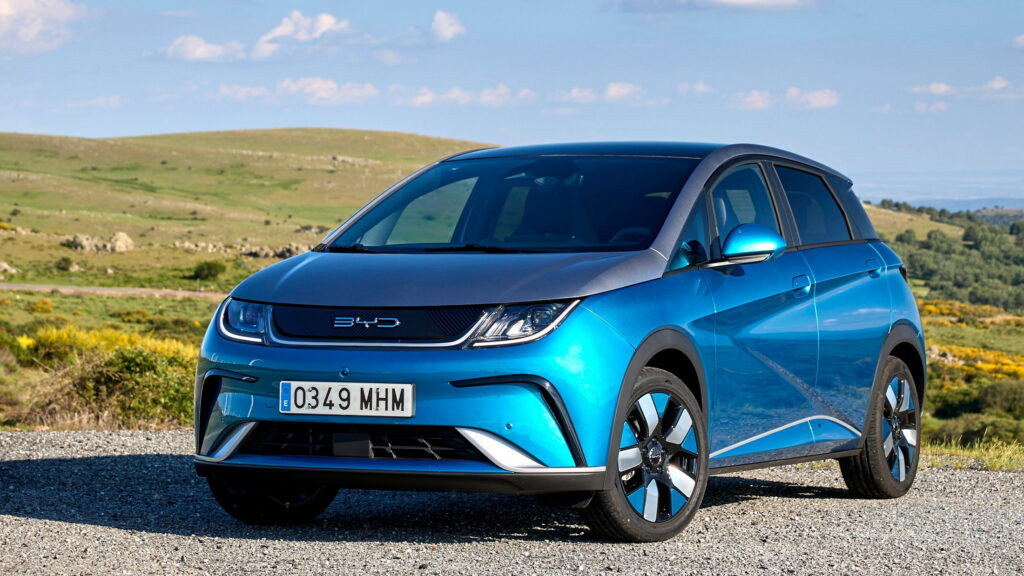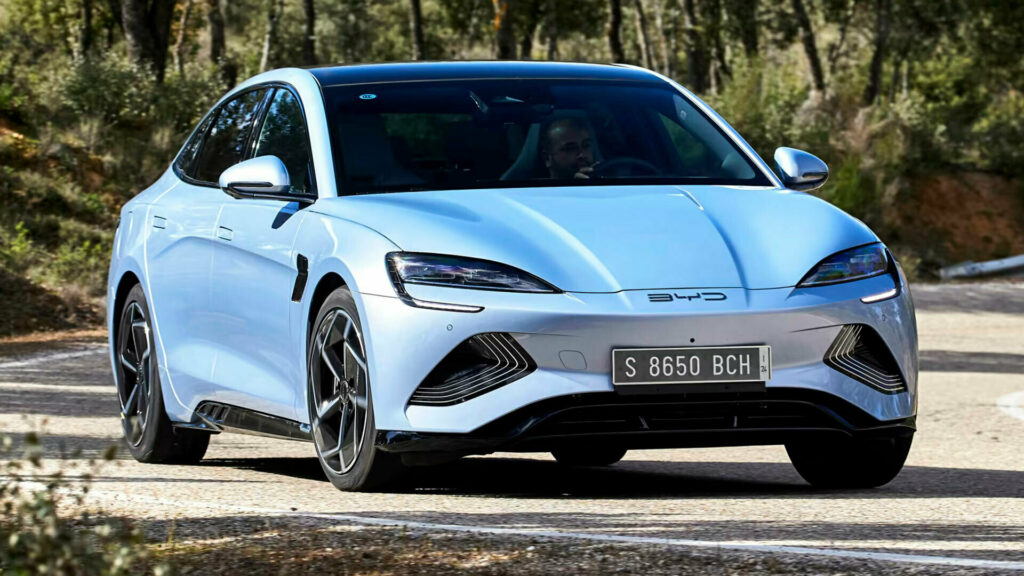- The brand’s sales fell off a cliff in February with just 121,748 vehicles sold.
- BYD was the world leader in EV sales in the fourth quarter of 2023 but demand for its models has decreased.
- Carmaker’s Song was its best-selling vehicle last month.
After struggling through a difficult February, BYD has reported the second-best month of sales for its plug-in ‘new energy vehicles,’ shifting 301,631 units during March.
In February, sales from China’s leading manufacturer of plug-in vehicles fell by 36% and amounted to just 121,748 units. This represented the first year-over-year quarterly decrease since mid-2020 and prompted fears among some that demand for the brand’s models was beginning to slow. However, the main contributor to this drop was the fact that this year’s Chinese New Year holiday ran from February 10 to 17, while in 2023 it was held in January.
Read: BYD’s Latest EV Costs Less Than A 10-Year-Old Toyota Corolla (In China)

BYD bounced back in March. Of the 301,631 vehicles it sold, 139,902 were battery-electric vehicles (+36%) while the remaining 161,729 were PHEVs, a 56% increase from March 2023. The carmaker also sold 828 commercial electric vehicles in March and exported 38,434 vehicles, a new monthly record.
In Q4 2023, BYD overtook Tesla as the best-selling brand of battery-electric vehicles but it will not hold on to its narrow lead through Q1 2024. In the first quarter of the year, BYD sold 300,114 battery-electric vehicles and 324,284 plug-in hybrids for a total of 624,398 units. While impressive, Tesla is widely expected to have ended Q1 2024 with approximately 450,000 BEVs finding new homes.
The firm’s best-selling model in March was the Song with 78,490 units sold. The second most popular model from the BYD family was the Qin with 40,569 examples. Both the Song and Qin are offered in plug-in hybrid and battery-electric guises. BYD’s cheap Seagull has also proved popular this year with 34,830 units sold, making it the carmaker’s third most popular model.




